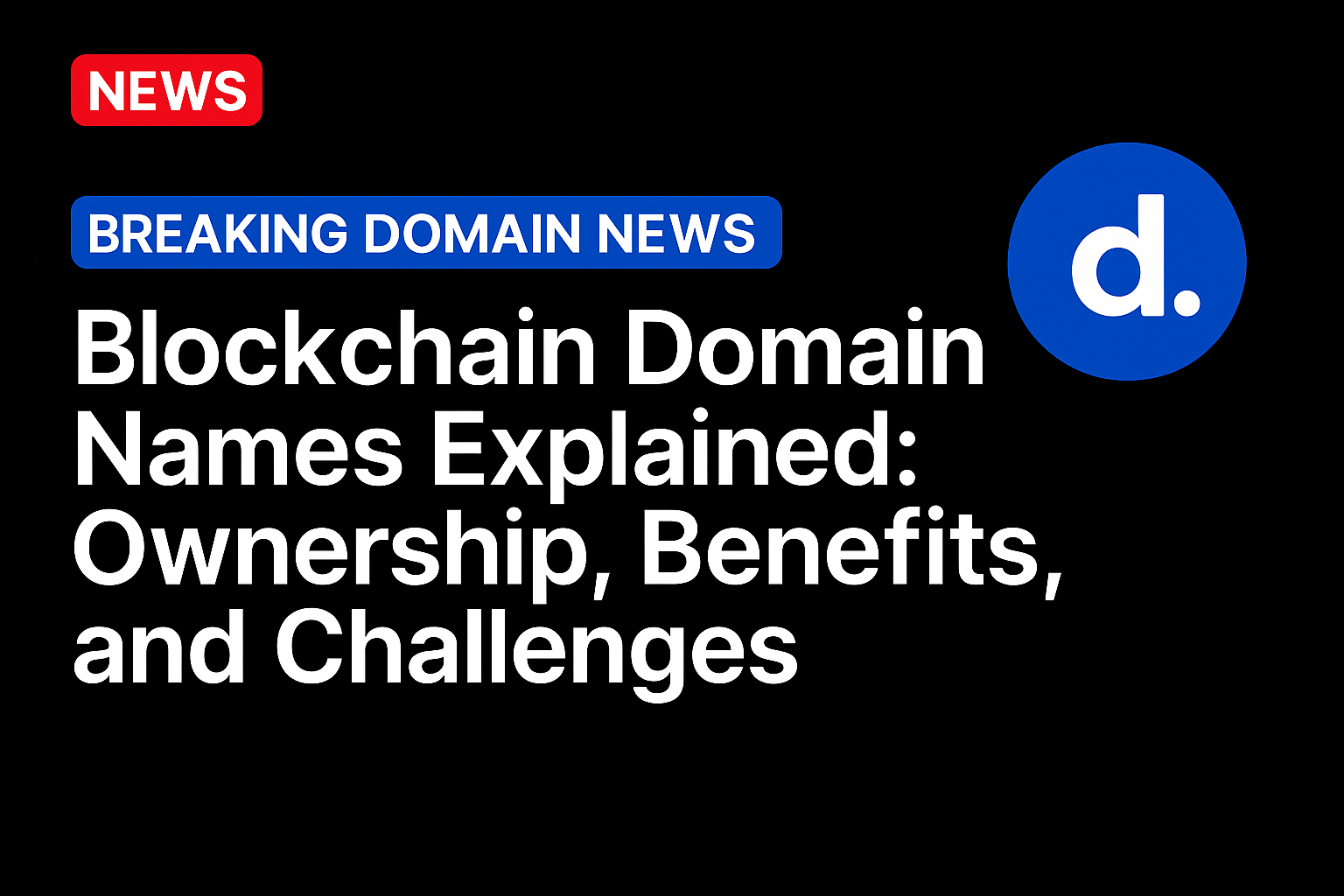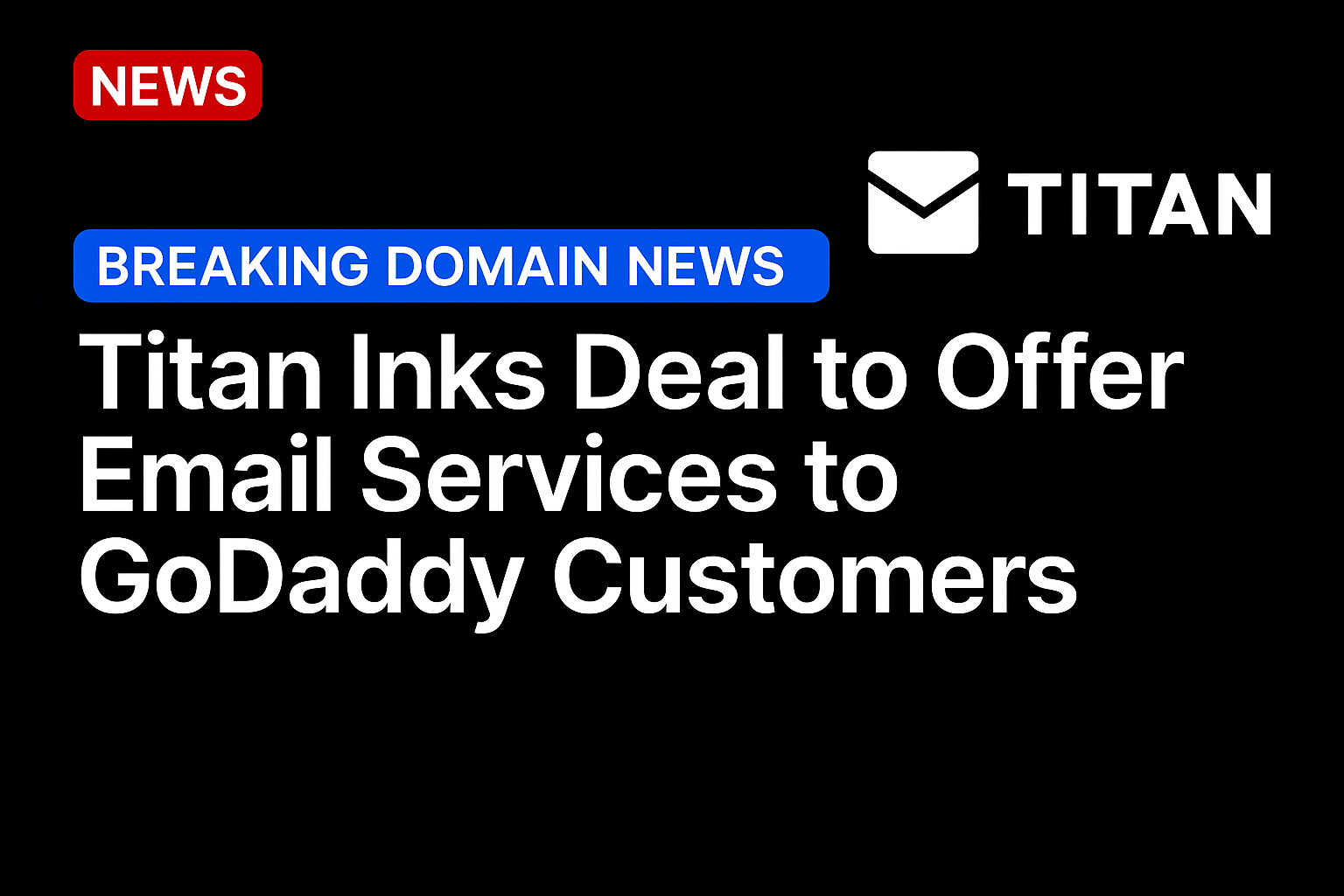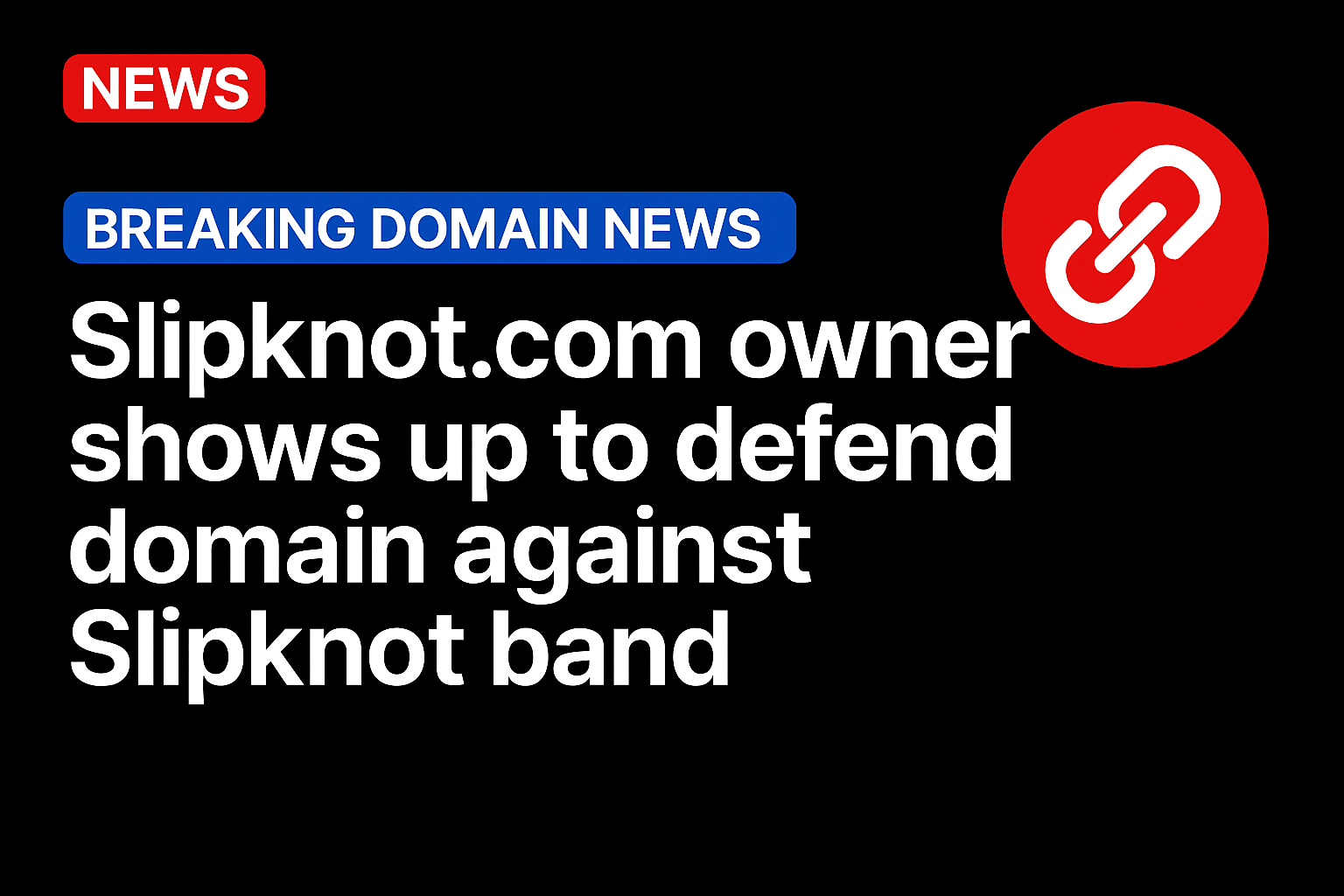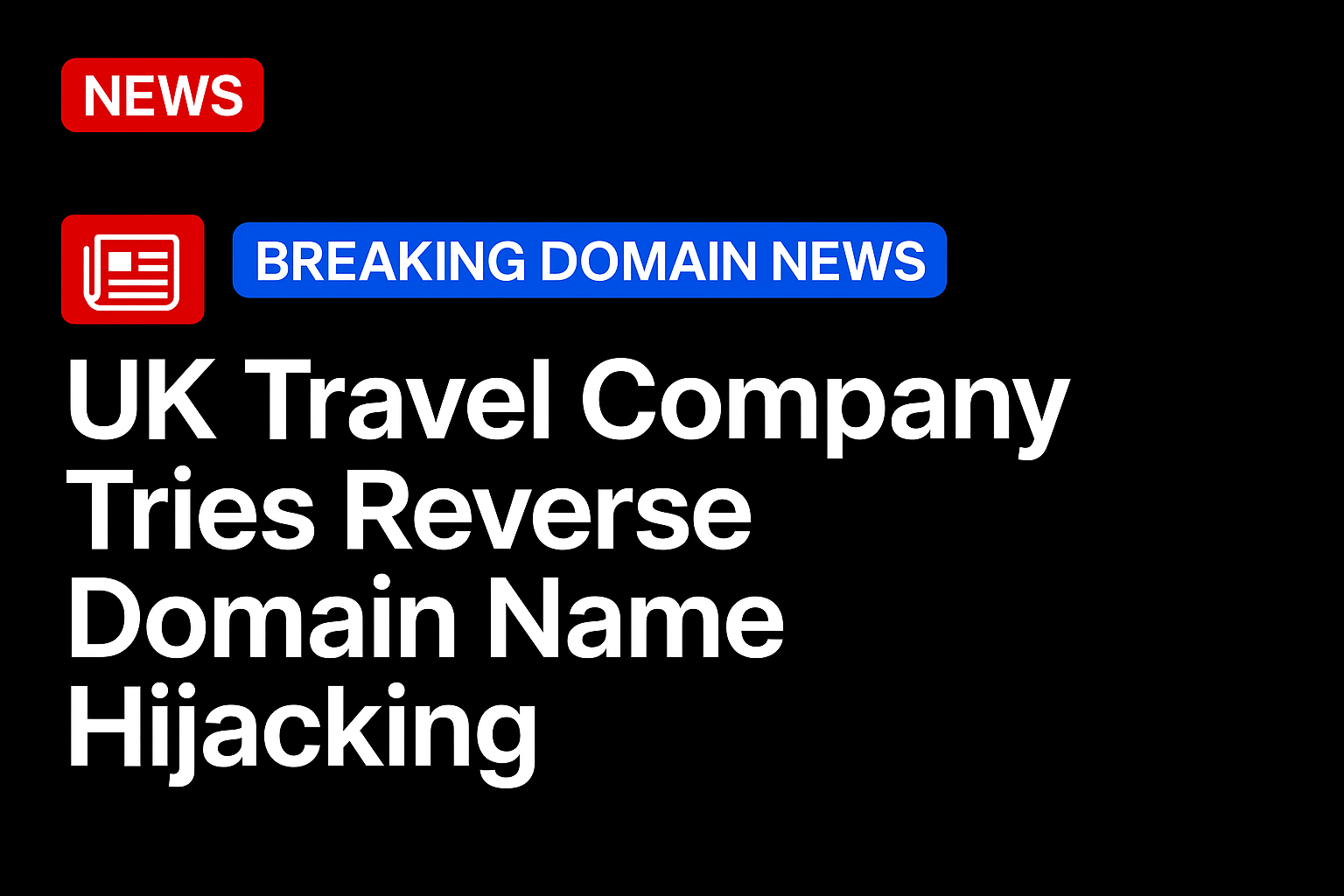
Blockchain domain names are decentralized web addresses built on blockchain technology rather than traditional domain name systems (DNS). Unlike conventional domains managed by centralized authorities blockchain domains are owned directly by users through smart contracts, providing full control and censorship resistance.
They serve as human-readable identifiers for blockchain addresses—transforming complex wallet addresses like 0xA3b4 into easily memorable names like yourname.crypto. Beyond simplifying crypto transactions, blockchain domains are also used for decentralized websites (dWeb), Web3 identities, and even blockchain-based email systems.
Key Takeaways
- Blockchain domain names give users permanent, self-custodied ownership without renewals or third-party control.
- They are censorship-resistant, meaning no government or centralized authority can seize or suspend them.
- Blockchain domains simplify crypto transactions by replacing long wallet addresses with easy-to-read names.
- A single blockchain domain can serve as a unified Web3 identity, connecting wallets, NFTs, and social accounts.
- Despite challenges like limited browser support and legal uncertainty, providers such as ENS and Unstoppable Domains are driving broader adoption.
How Blockchain Domains Work
Traditional domains are stored on centralized servers managed by registrars. In contrast, blockchain domains live on decentralized ledgers, recorded as tokens (NFTs) that represent ownership. Once minted, the domain exists permanently on-chain, meaning the holder can transfer, sell, or link it to various blockchain applications without intermediaries.
Ownership is controlled through a private key, giving users complete authority over their domains. This eliminates common issues such as domain hijacking, unauthorized seizure, or censorship, as there’s no single entity capable of revoking access.
For example, if someone registers Alex.wallet on Ethereum, it’s stored as an NFT in their crypto wallet. They can use it to receive cryptocurrency, host decentralized websites, verify their digital identity, or link all their social and DeFi profiles under one name.
Popular Blockchain Domain Providers
Blockchain naming systems are growing quickly, with several major providers leading innovation across different blockchains:
1. Ethereum Name Service (ENS): ENS is built on the Ethereum blockchain and uses the .eth extension. It’s one of the most widely adopted decentralized naming protocols, with integrations across wallets like MetaMask, Coinbase Wallet, and platforms like Uniswap and OpenSea.
ENS domains are stored as ERC-721 NFTs, which means they can be traded or transferred just like digital assets. The service supports linking multiple wallet addresses, decentralized websites (via IPFS), and off-chain data such as social profiles.
2. Unstoppable Domains: Unstoppable Domains supports extensions like .cryto, .nft, .wallet, and .X. Unlike ENS, it operates across multiple blockchains (Ethereum, Polygon, BNB Chain, etc.) and offers one-time purchases with no renewal fees.
The platform also focuses on Web3 identity, allowing users to link wallets, DeFi accounts, and social handles under a single domain name, which can act as a universal Web3 login.
3. Handshake (HNS): Handshake is a decentralized naming protocol designed to replace the root zone of the traditional DNS. It’s powered by its own blockchain and token (HNS). Unlike ENS and Unstoppable, Handshake names can mirror existing DNS domains and integrate with browsers through extensions, allowing decentralized management of traditional-style domains.
4. Bonfida (Solana Name Service): Operating on the Solana blockchain, Bonfida offers .sol domains optimized for speed and low transaction fees. These domains can map to Solana wallet addresses and support integration with Solana-based dApps and wallets like Phantom.
5. SPACE ID: Built on the BNB Chain, SPACE ID provides .bnb and .arb domains for the Binance and Arbitrum ecosystems. It’s gaining adoption through its integration with popular DeFi platforms and multi-chain identity management tools.
Benefits of Blockchain Domain Names
Blockchain domain names go beyond being digital addresses—they’re redefining online ownership and identity. Here are the key advantages:
1. True Ownership: Once purchased, a blockchain domain belongs entirely to its holder, stored in their crypto wallet as an NFT. There are no renewal fees, no registrar, and no possibility of arbitrary revocation. Users maintain full sovereignty over their domains.
2. Censorship Resistance: Blockchain domains operate on decentralized networks, they’re immune to takedowns or censorship. Governments, corporations, or registrars cannot remove or suspend them, ensuring freedom of expression and open access to content.
3. Simplified Crypto Transactions: Blockchain domains replace long, error-prone wallet addresses with easy-to-remember names. Instead of sending funds to 0x3b4a9…, users can simply send to alice.eth or mike.crypto, reducing the risk of costly mistakes in crypto transfers.
4. Unified Digital Identity: These domains can serve as all-in-one Web3 identities—connecting wallets, NFTs, social handles, and DeFi profiles. For instance, one domain can represent a person or brand across multiple decentralized applications.
5. Multi-Chain Interoperability: Some blockchain domains (like those from Unstoppable Domains and SPACE ID) support linking addresses across multiple chains. This allows users to use a single name to receive Bitcoin, Ethereum, or other crypto assets seamlessly.
6. Web3 Website Hosting: With IPFS (InterPlanetary File System) integration, users can host fully decentralized websites tied to their blockchain domains. These websites remain accessible as long as the blockchain exists—without dependence on traditional web servers.
7. Enhanced Security: Blockchain domains are secured by cryptography. Since ownership is verified by private keys, they’re less vulnerable to phishing, DNS hijacking, or registrar-level manipulation that affects traditional web domains.
Challenges and Limitations
Despite their promise, blockchain domains are still developing and face several challenges:
1. Limited Browser Compatibility: Mainstream browsers like Chrome and Safari don’t natively support blockchain domains yet. Users often need browser extensions (like MetaMask or Unstoppable’s browser plugin) or decentralized browsers such as Brave and Opera to access them.
2. Regulatory and Trademark Issues: Blockchain domains are decentralized and immutable, there’s no central body to resolve disputes. This raises potential legal and trademark conflicts—anyone could mint a domain using a brand name without authorization, and reclaiming it may be difficult.
3. Fragmentation Across Platforms: There’s no unified naming standard. ENS, Unstoppable, Handshake, and others operate independently, meaning name.eth and name.crypto could belong to different people. This fragmentation can create confusion for users and developers alike.
4. Technical Barriers: Setting up and managing blockchain domains can be complex for newcomers. Linking IPFS websites, configuring wallet integrations, or handling private keys requires some technical understanding, which may limit mass adoption.
5. Potential for Loss: If a user loses their private key or seed phrase, access to their domain is permanently lost—there’s no “forgot password” recovery mechanism. This risk makes secure key management essential.
Conclusion
Blockchain domain names are more than digital addresses—they represent a shift in internet ownership and identity. With true user control, security, and interoperability, they’re setting the foundation for a decentralized web where individuals—not institutions—govern their online presence.
Frequently Asked Questions (FAQs)
1. What makes blockchain domains different from traditional domains?
Blockchain domains are stored on decentralized blockchains, not centralized servers. This means users own them outright and can’t lose them due to censorship or non-payment of renewals.
2. Can blockchain domains be used for websites?
Yes. They can host decentralized websites through IPFS (InterPlanetary File System) or other distributed storage networks, creating websites that can’t be taken down.
3. Are blockchain domains compatible with all browsers?
Not yet. Only browsers like Brave and Opera have native support. Chrome, Safari, and others require extensions or DNS resolvers to access blockchain domains.
4. What are some popular blockchain domain extensions?
Common extensions include .eth (Ethereum Name Service), .crypto and .nft (Unstoppable Domains), .sol (Bonfida on Solana), and .bnb (SPACE ID on BNB Chain).
5. Can I lose my blockchain domain?
Only if you lose access to your private key or wallet where the domain NFT is stored. There’s no centralized recovery option, so key management is crucial.
Source: https://financefeeds.com/




